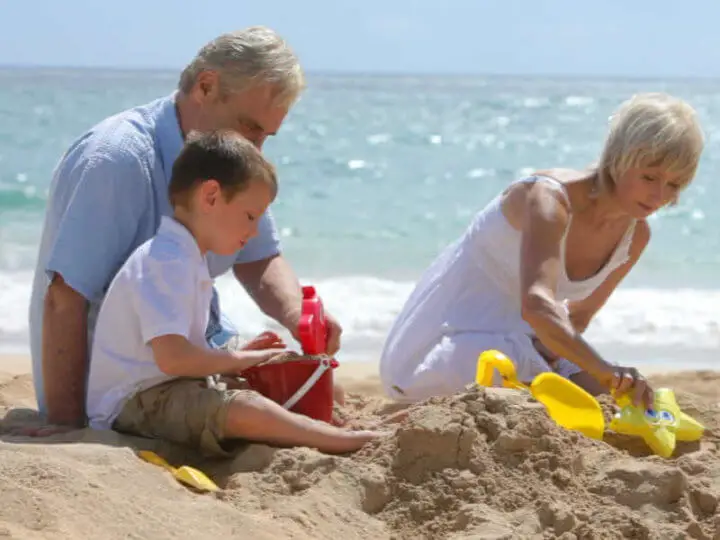
Sunscreen, also known as sunblock, is one of the most essential products for every skin type. Many people think that sunscreen is essential in summers. However, it is also crucial to wear sunscreen in the winter or other seasons. Sunscreen plays a very vital role and protects us from the harmful radiations of the sun. Wearing sunscreen is essential and should be your priority. Even if your skin doesn’t burn quickly, you should wear sunscreen.
It is not just essential to apply sunscreen once. It is important to reapply sunscreen every 2 hours. According to experts reapplying the sunscreen is the key to protect your skin. However, the question is which sunscreen is excellent and safe for your skin?
What is SPF?
When buying sunscreen one of the most critical factors that play a significant role is the SPF of the sunscreen. SPF or Sun Protection Factor is a measure which determines the effectiveness of the sunscreen.
There are different types of UV rays, and the three main types of UV rays are UVA, UVB, and UVC. All these three types can damage your skin. However, different UV type affects the skin cells differently.
• UVA: They are of the longest wavelength and can cause tanning and aging of the skin. However, they are less intense than UVB rays. They are further of two types: UVA I and UVA II.
• UVB: UVB rays affect the top layer of the skin and cause sunburns. These rays can affect your skin’s DNA cells directly. If you are not wearing sunblock, UVB rays can damage your skin in less than 15 minutes. UVB rays have the potential to damage your skin and also increases the risk of skin cancer.
• UVC: These rays do not reach the earth as the ozone layer absorbs them. However, these rays are found in human-made sources of UVC radiations such as welding torches and mercury lamps.
SPF measures how well your sunscreen will protect you from UVB rays. However, it will not measure how better it performs and how well it protects your skin from UVA rays.
Summer days are meant to be enjoyed, not to be worried about how to protect the skin from the sun and harmful UV radiations. Along with the protective clothing and the right sunglasses, the proper SPF sunscreen is necessary to protect the skin from getting damaged.
Does sunscreen with higher SPF protect my skin better?
UV rays are invisible to us. But SPF number is visible on the label of the product, and it is necessary we choose our sunscreen by checking the entire ingredients list and also ensuring that it has SPF number which is safe for our skin. It makes sense if we say that sunscreen with super-high SPF will give you the maximum protection and will protect your skin from getting damaged for a more extended period. However in real life sunscreens don’t work that way.
• Higher SPF doesn’t mean better sun protection. It doesn’t mean that you can spend more time in the sun.
• Even if you’re using a higher SPF sunscreen, you’d still have to reapply it in every two hours if you’re exposed to the sun.
• No sunscreen will offer you 100% protection over the sun.
According to EWG and Skin Cancer Foundation, SPF 15 sunscreen blocks about 93% of UVB rays, whereas SPF 30 blocks about 97% of the harmful UV rays. SPF 50 product will only protect 98% whereas SPF 100 will protect about 99%. From the above numbers, it is clear that even 100% SPF product will not give you complete protection from the harmful radiations. You’ll still be exposed, and there are chances of skin damage that can affect your skin. It can also be observed that these higher SPF sunscreens are only slightly better at shielding you.
You might have thought that SPF 30 will give double protection in comparison to SPF 15. However, it is not the case. The logic of mathematics doesn’t work when it comes to sunscreen.
Experts even say that you should avoid sunscreens which are higher than SPF 50. No product is entirely valid, and it is essential to understand that you’ll get the same amount of sun exposure after 30 minutes even if you’re using higher SPF sunscreen. No matter if you use SPF 15 or SPF 50, after 30 minutes of sun exposure, the effects or the damage caused will be the same. It is because no sunscreen can stop or prevent all the harmful radiations of the sun.
Don’t fall in the trap of higher SPF sunscreens. Here are some of the critical reasons why SPF values greater than 50 are not that good.

1. Sunburn protection is only marginally better
It is common, and people assume that the sunburn protection doubles if they apply SPF 30 instead of SPF 15 product. However, as mentioned above, it is not at all true. The sunscreen doesn’t work like that. One can even use an SPF 30 product and reapply it every two hours to protect them from sunburn. As protection is only marginally better and also the better product needs to be reapplied every two hours. I’d say it is not a great thing to invest in higher SPF products as the results might not be of much difference.
2. Creates a false sense of security
Sunbathers assume that the protection is higher and tend to stay out in the sun for a more extended time. A higher SPF product creates a false sense of security in the consumer’s mind that they can spend as much time as they want in the sun because they are using higher SPF products. Spending more time in the sun or overexposing can further damage the skin and may lead to sunburn or skin cancer, which can be dangerous for the skin. And this is one of the worst things that higher SPF sunscreen does with its customers. By inciting the customers, they are increasing the risk of harmful effects such as burns and cancer.
3. High SPF sunscreens may pose hazards to human health
Sunscreens are designed to protect our skin from the harmful radiations of the sun, and we assume it as a friend for our skin. However, it is essential to note that sunscreens may also pose hazards to human health. The whole issue is with the ingredients used for making sunscreens.
Higher SPF sunscreens generally use a higher concentration of sun-filtering chemicals whereas low SPF sunscreens comprise of fewer chemicals. Some of these chemical ingredients may cause tissue damage, allergic skin reactions, and may even disrupt the hormonal cycle of a human. Therefore, it is crucial to choose your sunscreen wisely.
Look at all the ingredients and consider selecting a sunscreen with lower concentrations of active ingredients. For example, you may choose SPF 30 or SPF 50 instead of going for SPF 70 or more than that. Some research studies have shown that even using sunscreen can cause minor changes to cells. However, there has been no evidence that the changes that occur in the skin can lead to cancer.
It is evident that higher sunscreen SPF doesn’t mean maximum protection. It doesn’t imply that the ingredients are safe. It is just a number which offers only slightly better coverage than the lower concentration or, the lower SPF sunscreens.
Don’t forget any part of your body. Apply sunscreen even on the little areas. Even small exposure might cause tremendous damage.
Sunscreens are safe to use every day. If you’re going out, especially in summers, you should never miss out wearing a sunscreen. And whenever you’re out and exposed to the sun, you should always reapply it.
When looking for a good sunscreen, always check the label of the sunscreen and read the ingredients list. Try to find a “broad-spectrum sunscreen” as it will offer you maximum protection against both types of UV rays: UVA and UVB. Always wear this shield and minimize solar damage.
Along with sunscreen, make sure you apply a lip balm with SPF. Make this a habit of your routine and wear sunscreen every day before stepping out of the house. Trust us; your skin will thank you later! It will form a shield for your skin and will protect you from the dangerous health hazards.
Author Bio – Haifa Aboobacker

Haifa is a growth assistant at AirTract.Com, a social platform in which people ask questions, get answers, read articles, share knowledge and experience.
She is a communication engineering graduate but a digital marketing buff who is fascinated by the best SEO practices and content strategies. She loves to make friends and explore places, and she chooses reading in her time off.


“You might have thought that SPF 30 will give double protection in comparison to SPF 15. However, it is not the case. The logic of mathematics doesn’t work when it comes to sunscreen.”
I’m afraid you’re looking at the wrong numbers here. From the values you quote above, SPF 15 *lets through* 7% of UVB, whereas SPF 30 lets through only 3%. So SPF 30 does protect twice as much as SPF 15…
…until it breaks down or your sweat washes it off, hence the 2-hour re-application requirement…
The American Academy of Dermatology states that SPF 30 is sufficient protection and that there is no need to go above that. It also states that sunscreen should be reapplied every two hours when exposed to sunlight.
Comments are closed.